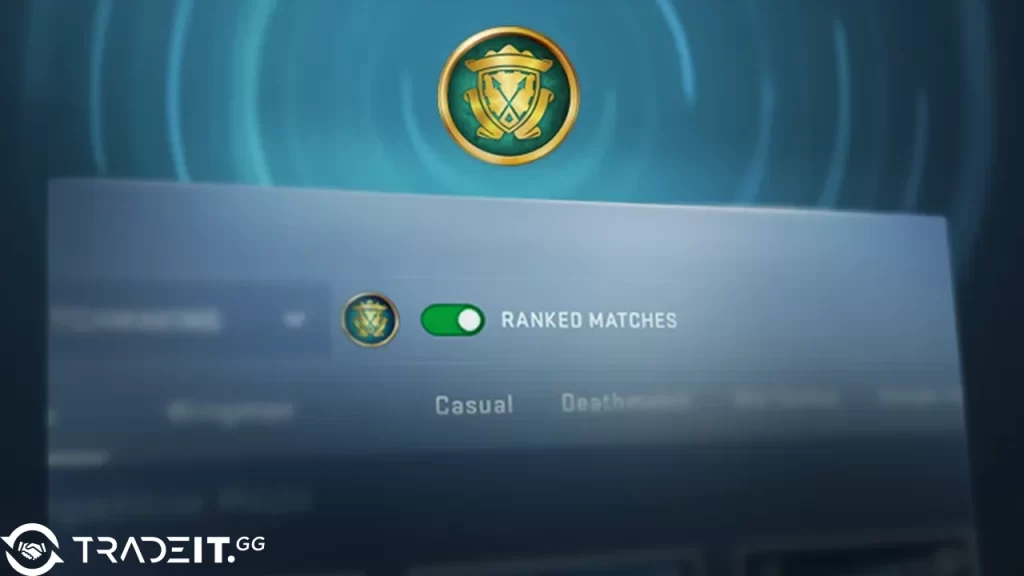Daily Wonders and Discoveries
Explore the latest news and intriguing insights from around the world.
CS2 Prime Matchmaking: Why Your Rank Might Be a Mystery
Uncover the secrets behind CS2 Prime Matchmaking! Discover why your rank remains a mystery and how to level up your game today!
Understanding the Factors Behind CS2 Prime Matchmaking Ranks
The CS2 Prime Matchmaking Ranks are determined by various factors that significantly impact a player's experience and overall ranking progression. One of the primary elements is the player's performance in matches, which includes metrics such as kills, deaths, assists, and overall contribution to team objectives. Players who consistently showcase high skill levels and teamwork will find their ranks rising, while those who struggle may experience stagnation or demotion. Understanding these metrics is crucial for players seeking to improve their rank and compete at higher levels.
Another vital aspect of the CS2 Prime Matchmaking Ranks is the importance of playing within the designated Prime mode. Players participating in Prime matchmaking typically enjoy a more balanced experience, as they are matched with others who have verified their accounts and shown commitment to the game. Additionally, factors such as win streaks and losses, as well as the consistency of gameplay within a given time frame, also play a critical role in determining rank. By focusing on improving skills, teamwork, and the overall gaming experience in Prime matchmaking, players can effectively increase their ranks and enjoy a more competitive environment.

Counter-Strike is a highly competitive first-person shooter that has captivated gamers around the world. In this game, players can form teams to engage in tactical gameplay and complete various objectives. If you encounter a team member who is not cooperating, you might want to learn how to vote kick cs2 to maintain team performance.
The Mystery of CS2 Rank Placement: Common Myths and Misconceptions
The journey to CS2 rank placement is often shrouded in uncertainty, leading to a plethora of myths and misconceptions within the gaming community. One common myth is that playing with friends automatically boosts your rank, fostering a belief that team synergy alone can overcome individual skill disparities. However, the ranking system is designed to assess individual performance, making it crucial for players to focus on personal improvement rather than relying solely on team dynamics. Additionally, players often misconceive that their previous rank in CS:GO guarantees a similar placement in CS2, but the new ranking algorithm takes various factors into account, creating a fresh evaluation landscape.
Another popular misconception is that players should just grind as many matches as possible to achieve a higher rank. While experience is important, the CS2 rank placement system prioritizes match quality over quantity. Engaging in meaningful gameplay, practicing effective strategies, and enhancing personal skills will yield better results than merely increasing match count. Finally, many players think that a single exceptional performance can drastically impact their initial placement. In reality, the system considers an array of matches to gauge an accurate level, making consistency and sustained performance vital for ranking success.
Why Your CS2 Rank May Seem Unpredictable: A Deep Dive into Matchmaking Algorithms
The rank system in CS2 can often appear to be unpredictable, leaving players perplexed as to why their performance doesn't always translate into a consistent ranking. One of the primary reasons for this unpredictability lies in the complex matchmaking algorithms that govern ranked play. These algorithms are designed to consider not only individual player skills but also various external factors such as the skills of opponents, team composition, and even recent game performance. As a result, a player's rank can fluctuate based on wins, losses, and the specific conditions of each match.
Furthermore, the dynamic nature of matchmaking means that player rankings are not static. The system continuously learns and evolves, adapting to shifts in player behavior and game dynamics. For example, if a player consistently performs at a high level but faces opponents who have recently underperformed, their rank might not rise as quickly as expected. In contrast, a player who wins matches against stronger opponents may see a more rapid increase in rank. Understanding these nuances can help players better navigate the CS2 ranking system and manage their expectations regarding their rank fluctuations.